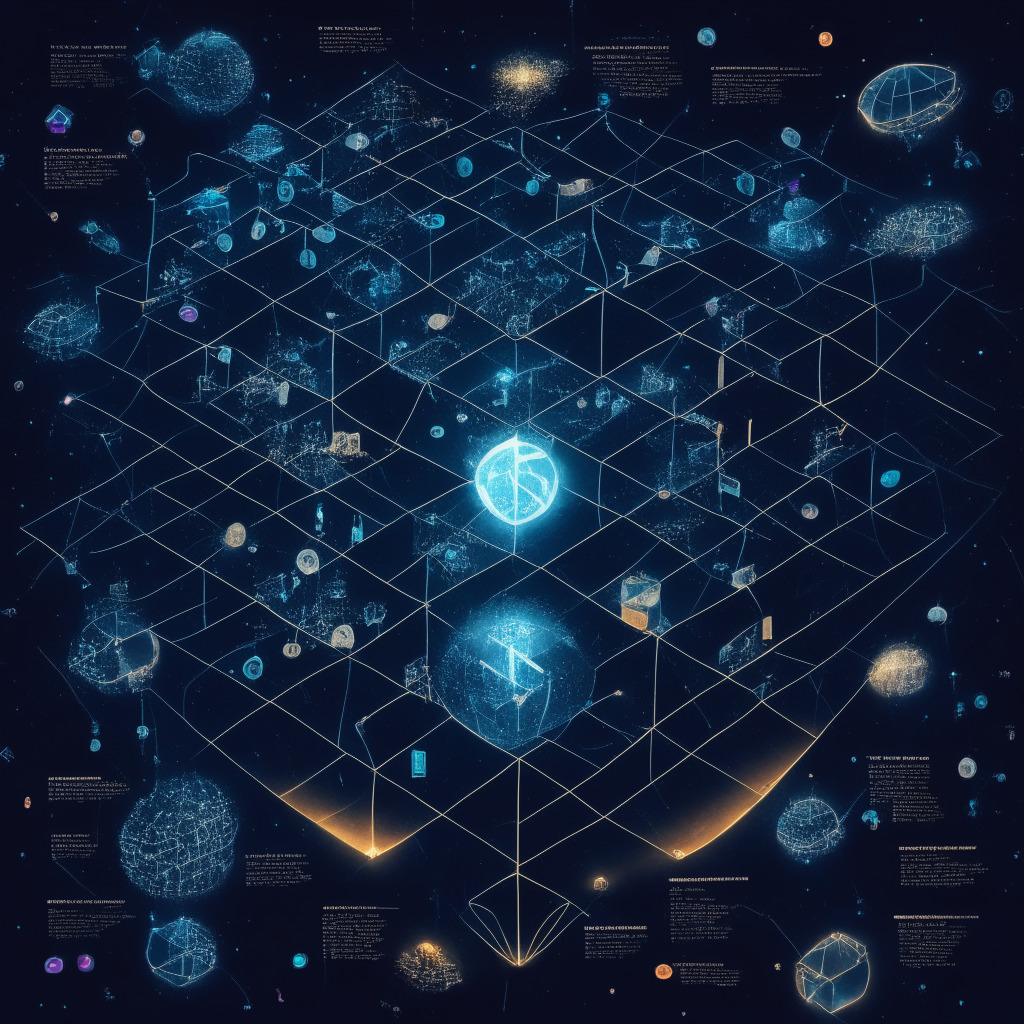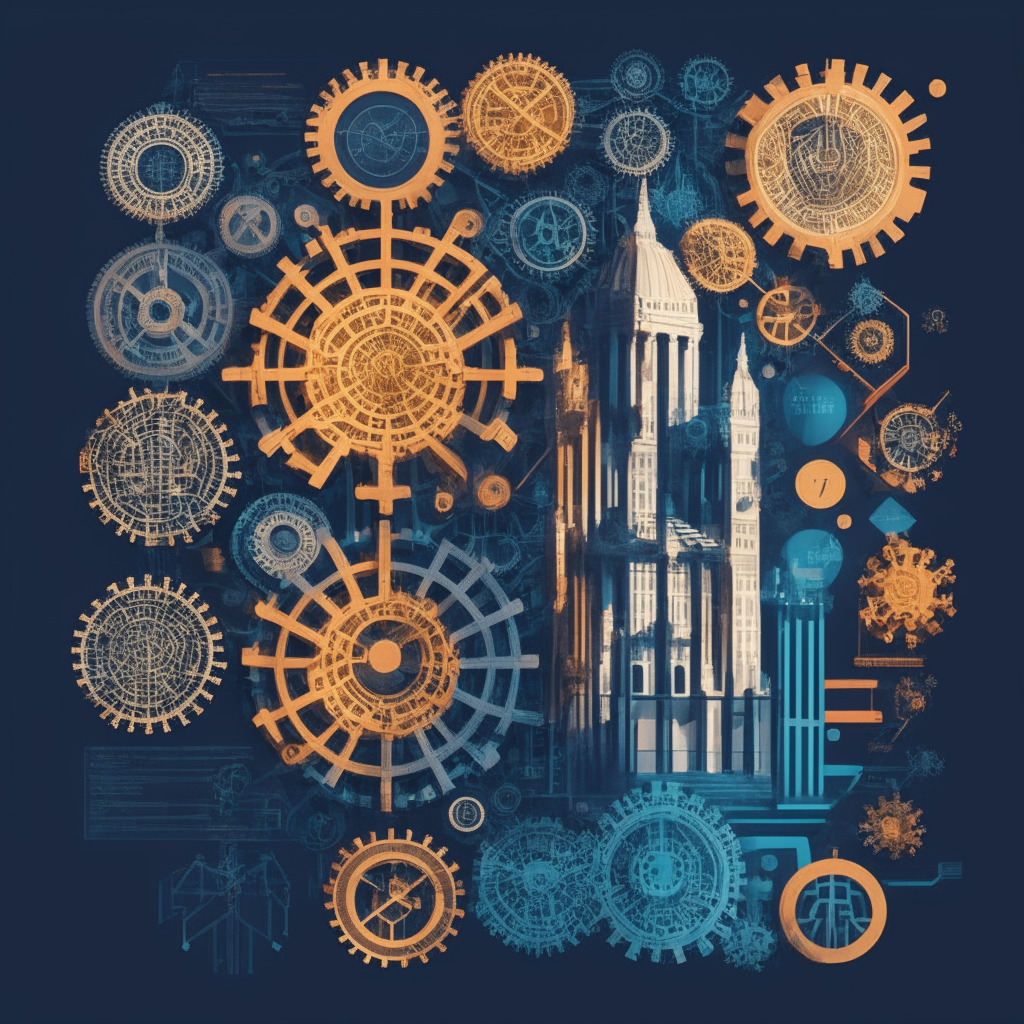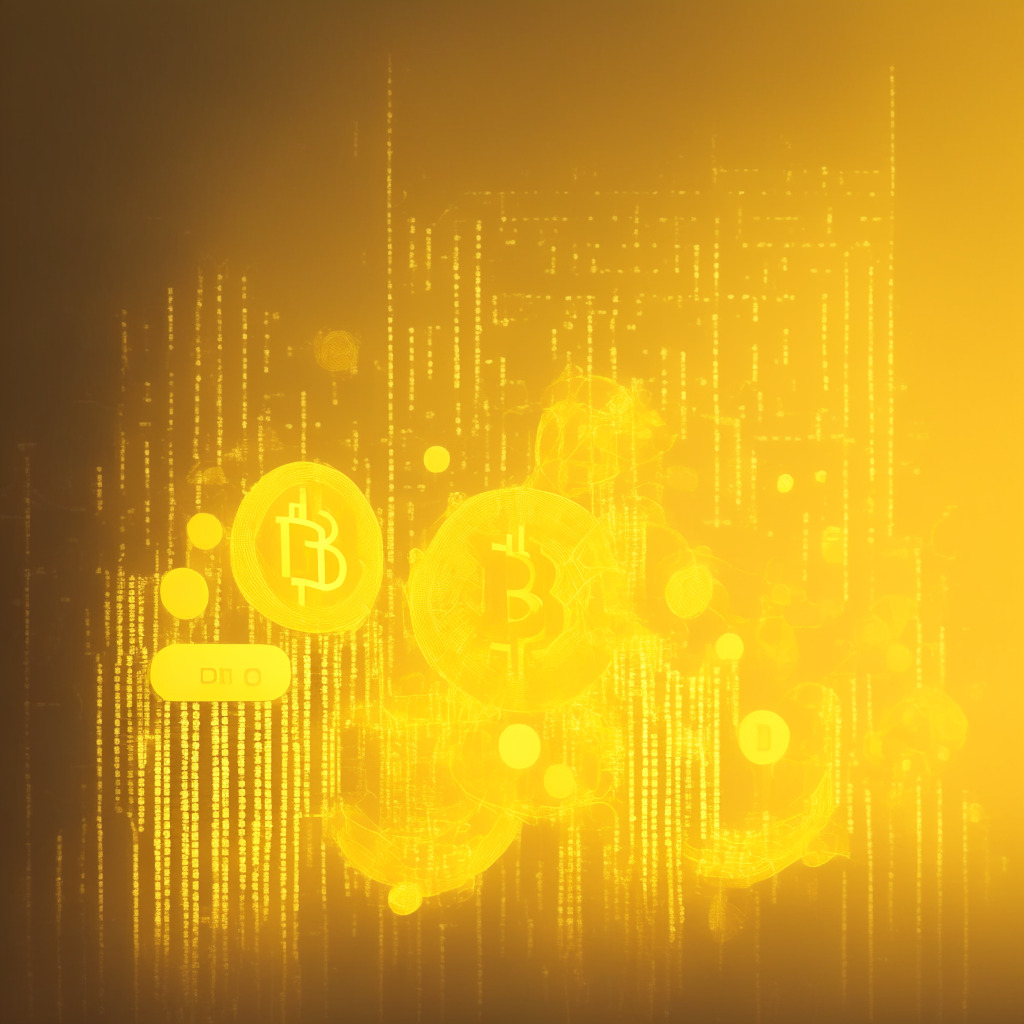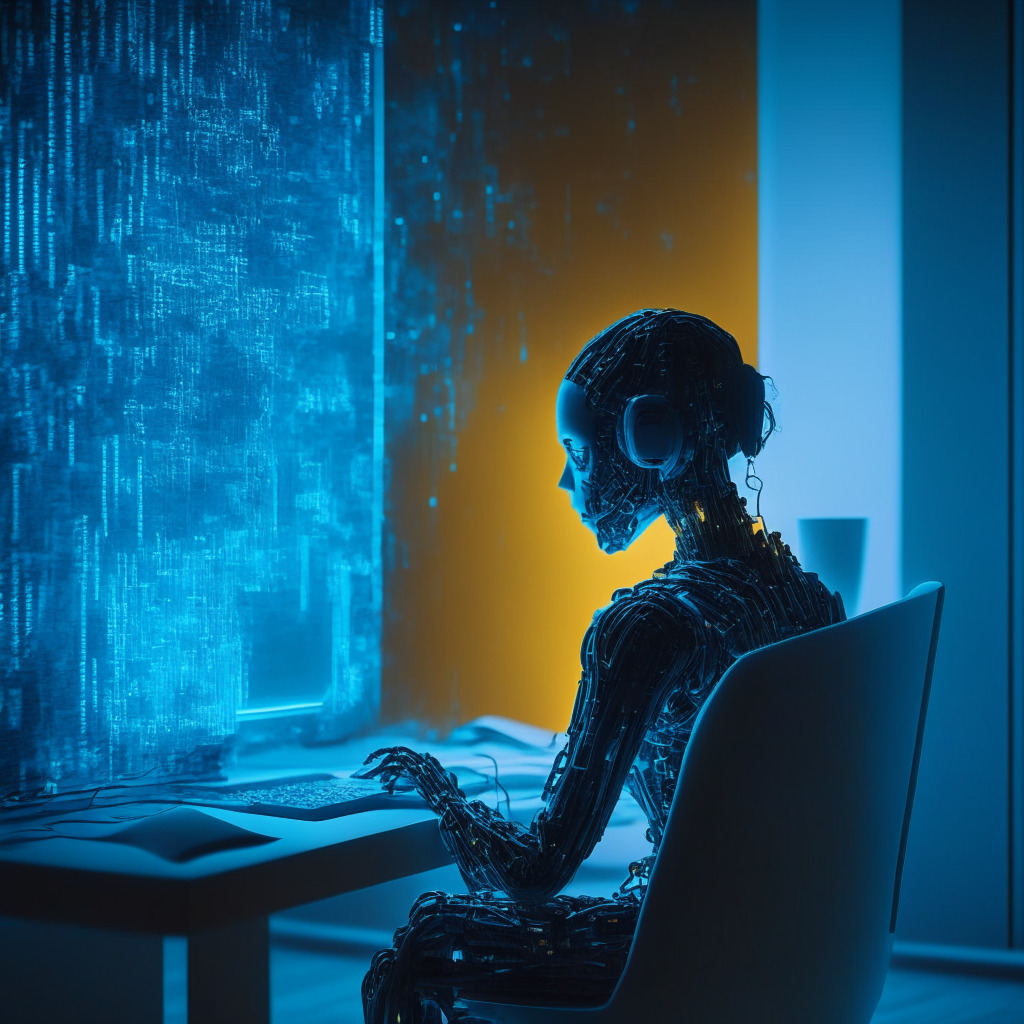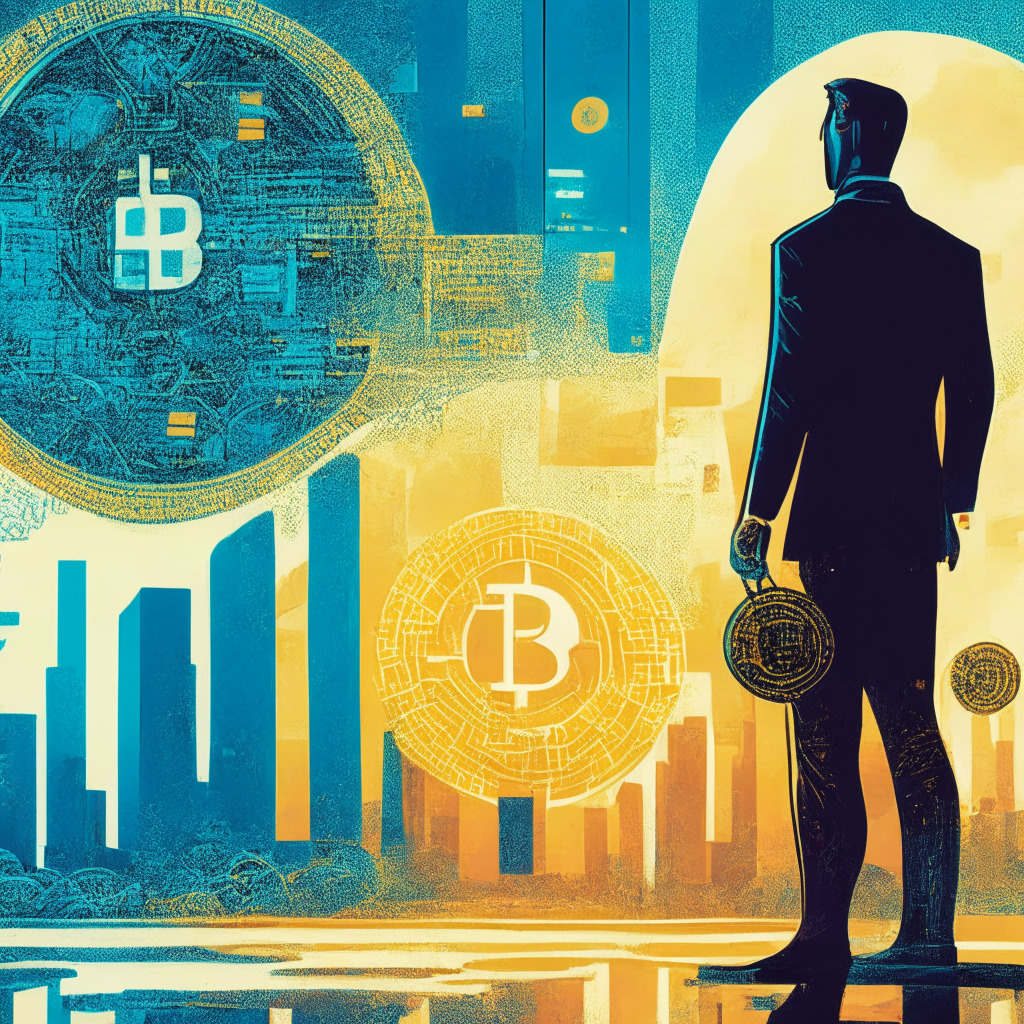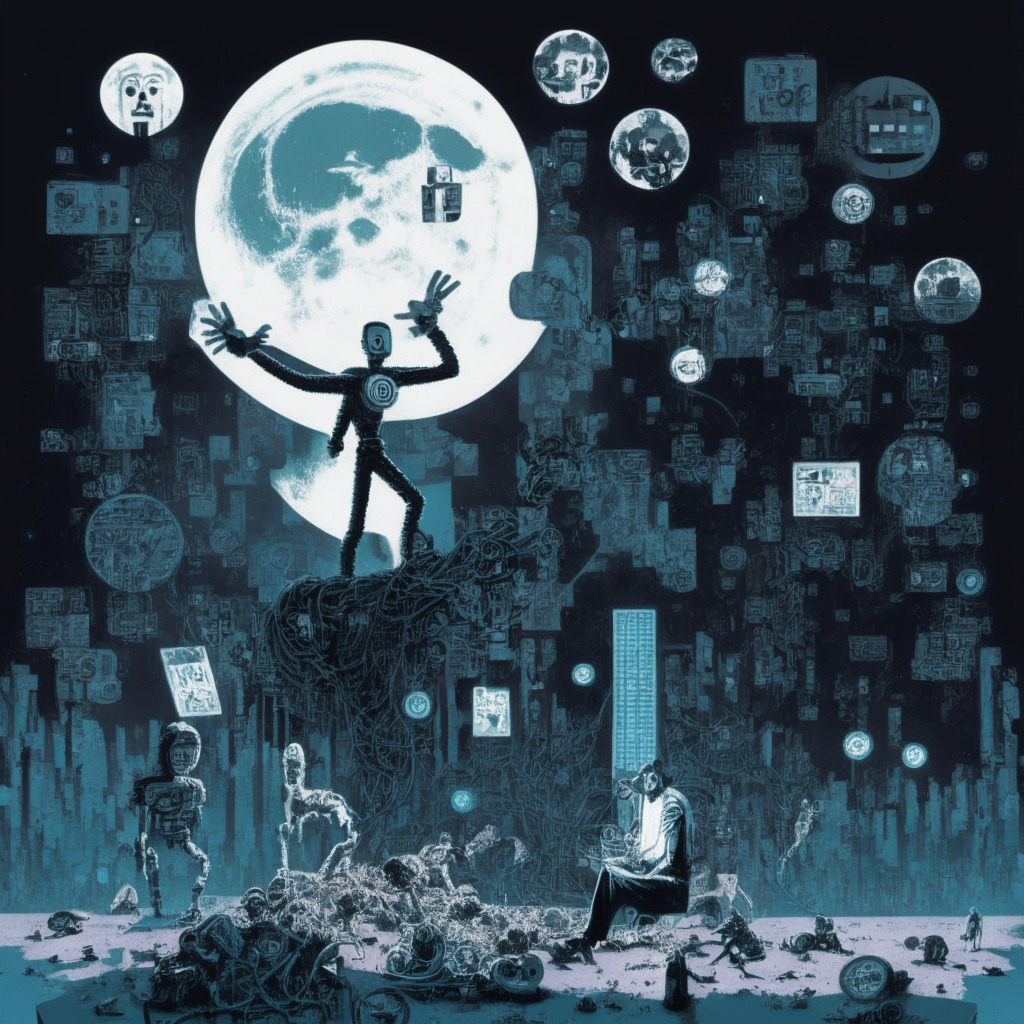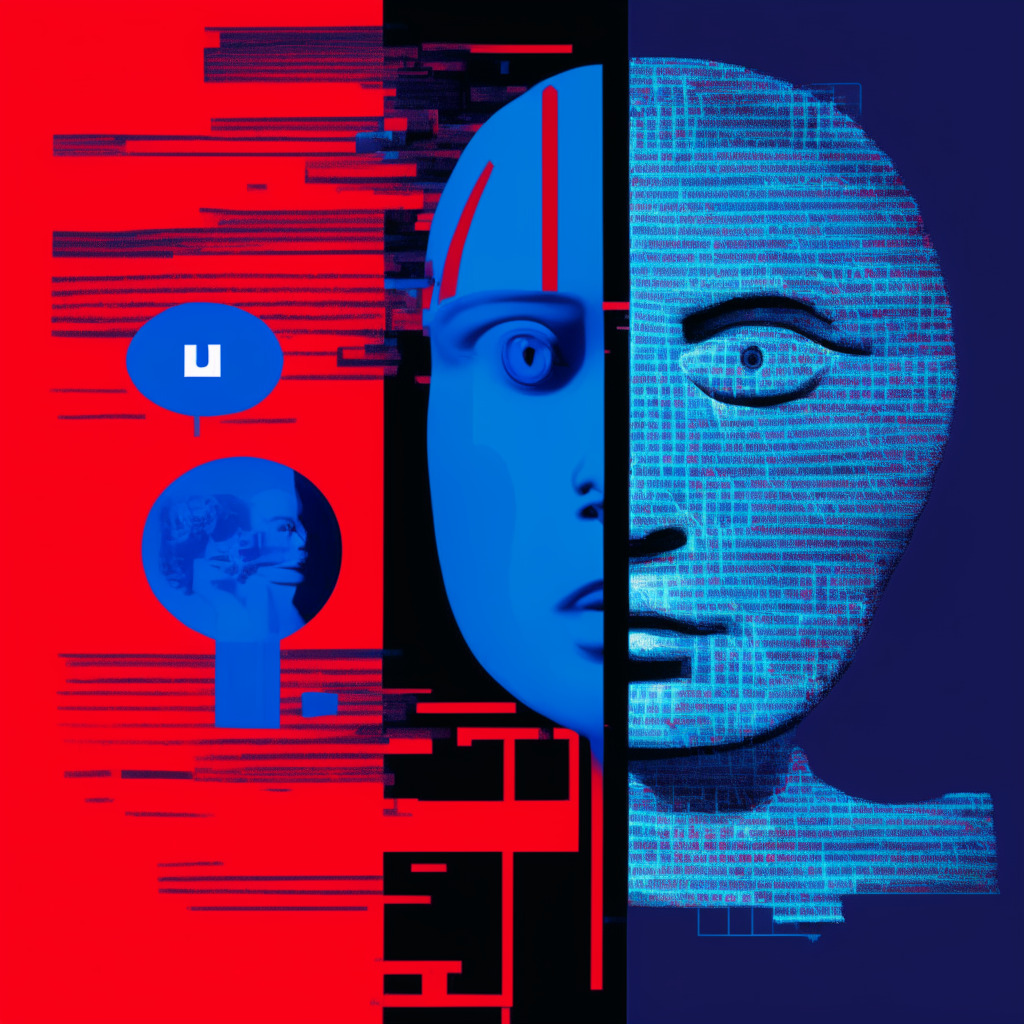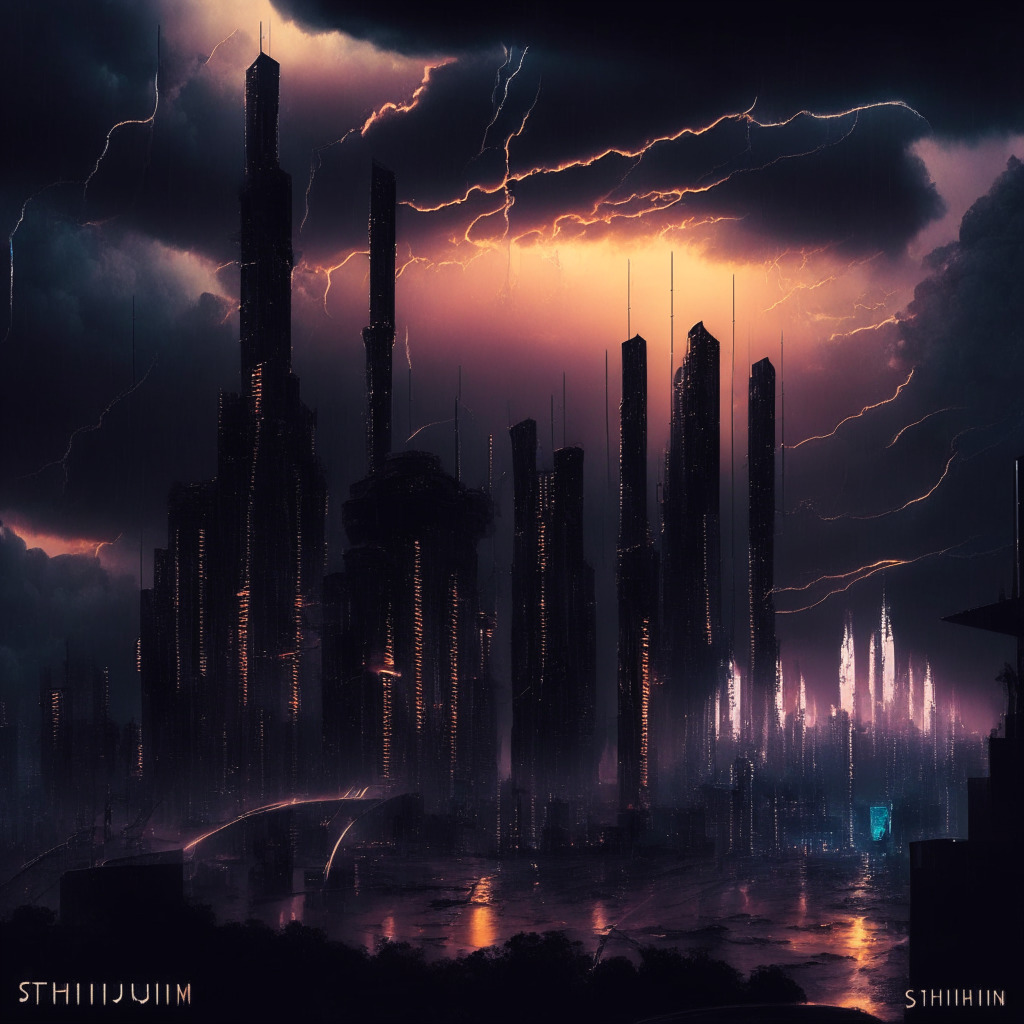“The Shibarium network of Shiba Inu recently faced a significant setback when an unforeseen user transaction surge led to transactions stalling for 11 hours post-launch. Despite initial hiccups, developers hope for successful reopening, utilizing new monitoring systems, auto server resets, and rate limiting to manage future traffic surges.”
Category: Technology
AI Automation: A Blessing or a Curse for the Global Job Market and the Future of Work?
Artificial Intelligence (AI) may significantly impact job roles, particularly clerical positions, with 24% highly susceptible to automation, reveals a United Nations study. It could disproportionally affect women, employees in high-income countries, and customer service roles in the Web3 sector. However, the study anticipates a balanced overall impact, emphasizing the need for proper management and regulation of AI technologies.
Navigating the Future of Blockchain with AI: A Gate to Web3 or a Complex Tech Conundrum?
“Hive Blockchain shifts its focus to artificial intelligence as Hive Digital Technologies, while remaining committed to Bitcoin and crypto mining. The company envisions AI and blockchain jointly promoting the development of Web3, potentially enhancing user privacy and data ownership.”
Central African Republic’s Groundbreaking Move: Tokenizing Land and Natural Resources
The Central African Republic (CAR) is advancing its Sango project with the aim of tokenizing land and natural resources. This could simplify procedures like online business visa applications and business establishment. It bears the potential to quicken licensing in sectors such as real estate, agriculture, and natural resource exploitation. However, concerns persist over potential unregulated exploitation and the stability of state-sponsored cryptocurrencies.
Surviving Crypto Storms: Lessons from eToro’s Resilience and Bitcoin’s Bumpy Journey
“Birthed in 2009 during banking crisis, Bitcoin introduced a revolutionary digital value transfer mechanism. Yoni Assia, CEO of eToro, capitalized on this, driving towards tokenizing assets on blockchain. Despite setbacks, Assia’s resilience, adaptability, and innovation support blockchain’s rise in financial world.”
Charting Success in the Whirlwind of Blockchain: The Essential Role of Branding Choices
“In the realm of blockchain technology, the wrong choice can lead to loss of funds, time, and trust among stakeholders. Choosing the right blockchain, aligning with your specific needs, can differentiate your brand, even in saturated arenas. This requires calculated risks and thorough research.”
Decentralized Social Network Friend.tech: Astounding Success or Potential Disaster?
“Decentralized social network Friend.tech quickly earned over $1 million in fees, outperforming giants like Uniswap and Bitcoin. However, concerns loom around its business model, potential exploitation, and data privacy, raising questions about its future sustainability and growth.”
Unraveling Crypto Flash Crashes: A Cross-Disciplinary Approach to Understanding Market Anomalies
“The Luna flash crash of May 2022 marked a significant event in cryptocurrency research. Particle physics methods were applied to understand the crash’s inner workings, revealing widespread instances of spoofing and layering in the market. This cross-disciplinary approach unveiled a new method for understanding cryptocurrency crashes and market structures, offering potential for greater transparency and stability.”
Choosing the Right Blockchain for NFTs: A Roadmap to Success or Path to Disaster?
“In the realm of non-fungible tokens (NFTs), the choice of blockchain such as Ethereum or Solana can significantly impact the success of your collection and the community’s perception of your brand. Lesser-known blockchains like Ripple, Tezos, and Polygon are also becoming attractive options. However, choosing a blockchain demands careful consideration of factors such as security, transaction speed, cost, scalability and smart contract functionality.”
Privacy vs. Transparency in Blockchain: A Look at Friend.tech’s Controversial Crypto Wallet Leak
“In the blockchain sector, privacy and security are essential. However, the release of a list of crypto wallet addresses connected to Friend.tech users on a GitHub repository stirred controversial discussion. The concern arises from the potential of viewing blockchain transactions linked to those wallets. As the blockchain technology continues to infiltrate social platforms, users should remain wary of the risks associated with data visibility.”
Emergence of Tech Adaptability: Digital Asset Miners Venturing into AI Services
“Digital asset miners are venturing into artificial intelligence, aiming to boost earnings and decrease dependency on conventional cryptocurrency operations. Notably, Bitcoin and Ethereum miners are driving this switch, while some miners continue mining other Proof-of-Work assets. Mining companies are rebranding to echo this trend, finding high-performance computing services for AI firms potentially more profitable than Bitcoin mining.”
Imperial College London and FluidAI Tackle Crypto Liquidity Challenges: A Leap Forward or a Risky Venture?
Imperial College London’s AI lab is collaborating with AI startup FluidAI to address liquidity aggregation, a key issue in the crypto space. Despite scepticism, FluidAI CEO, Ahmed Ismail, believes AI could potentially enhance the “tokenised market” by overcoming latency in bid/ask prices, improving liquidity. However, over-reliance on AI prediction models could risk market distortions.
Revolutionizing Multiple Industries: The Future of AI Intertwined with Blockchain Technology
“The combination of AI and blockchain technology could revolutionize industries by powering secure, self-improving data streams. However, integration challenges include scalability, privacy, and the need for skilled personnel to navigate AI algorithms and blockchain protocols.”
Hydro-Powered Bitcoin Mining: Pioneering the Green Crypto Future or Exacerbating Energy Woes?
Bitcoin mining is moving towards renewable energy, with Genesis Digital Assets Limited opening a hydroeletricity-powered data center in Sweden. This reflects a trend, proving that Bitcoin mining and clean, renewable energy can coexist, which potentially addresses the industry’s environmental concerns.
Exploring the New Horizons: How Crypto Miners Diversify Revenue Streams into AI Market
“Bitcoin and Ether miners are branching into new business areas including high performance computing services for the artificial intelligence industry, seeking to diversify revenue and reduce crypto reliance. This follows the Ethereum blockchain Merge, leaving a surplus of GPUs on the secondary market, used for gaming, rendering services and mining other cryptocurrencies.”
Navigating Bitcoin Transactions through Cash App: A Convenient Tool or a Security Nightmare?
“Cash App, developed by Block Inc, has won popularity for facilitating Bitcoin transactions, with its ‘Auto Invest’ tool easing price volatility. However, limitations exist in Bitcoin-only support and transactional data vulnerability. Also, funds lack FDIC or FSCS insurance, warranting caution.”
Dissecting the Buzz Around Friend.tech: A New High in Crypto or Regulatory Overstep?
Friend.tech, a social tokenization protocol, shows promising revenue generation within the crypto sphere. With Friend.tech, personalities can issue shares for exclusive group chats, amassing around $709,000 in ether revenue in a day. Besides its appealing growth, the platform raises questions regarding over-economic focus and regulatory oversight.
Friend.tech: Innovating Crypto Space or Inviting Unwanted Controversy? The Struggle for Balanced Growth
“Newcomer Friend.tech, a decentralized social network (DeSo), recently generated over $1 million in fees in 24 hours. The platform allows users to tokenize social connections, likened to trading shares. Despite its unique approach and promising start, concerns about the sustainability of the business model are arising.”
Yuga Labs Departs from OpenSea: Stand for NFT Creator Royalties Splits Community
“In response to OpenSea’s royalty model alterations and removal of the Operator Filter, Yuga Labs, behind the Bored Ape Yacht Club (BAYC), plans to phase-out OpenSea’s Seaport functionality by February 2024, reinforcing commitment to creator royalties.”
Exploring the OpenAI Code Interpreter: Bridging the Gap or Breeding Complacency?
OpenAI’s code interpreter, developed through reinforcement learning from human feedback, bridges the gap between human language and computer code. Understanding coding practices across languages, it not only grasps code functions, but also identifies bugs, and suggests code improvements. Despite its versatility, it’s crucial to recognise its limitations and reliance on training data.
Navigating Bitcoin Adoption in El Salvador: Opportunities and Challenges Unraveled
“During a trip to El Salvador, I saw innovative strategies to make Bitcoin more economically feasible, even for smaller investors. Key advancements like Lightning-enabled ATMs convert fiat to bitcoin with reduced costs, encouraging wider Bitcoin adoption. However, with Salvadoran banks’ legacy systems, non-bank services are crucial in facilitating digital currency acceptance.”
Balancing Act: Exploring ChatGPT’s Potential Risks and Benefits for Businesses
“IBM’s Jerry Cuomo highlights potential security risks in using AI-based models like ChatGPT by OpenAI, specifically the inability to control data once it enters the system. The lack of visibility into data use raises the risk of unintentional data leakage, intellectual property risks, and breaches of open-source agreements.”
Untangling Asset Tokenization: Promising Innovation or a Risky Venture?
“Asset tokenization firm Securitize has acquired a digital asset wealth platform, Onramp Invest, intending to enable registered investment advisors to buy digital tokens. However, growing concerns around risk underscore the need for caution in the decentralised finance (DeFi) world.”
The Double-edged Sword of ‘Consensus’: A Beneficial Forum or Spotlight on Division?
“Consensus” offers a platform for crypto-web and Web3 enthusiasts to discuss and address the pressing issues in the industry. The event’s discussions often reveal disagreements, highlighting inconsistencies in values and policies within the crypto community. Nevertheless, “Consensus” underscores the power of collaboration and discourse in shaping the future of decentralized systems.
Merging Finance and Blockchain: eToro’s Radical Shift versus Elon Musk’s Risky Maneuvers
“Yoni Assia, eToro’s co-founder, embraced financial technologies to democratize trading. eToro, under his steer, simplified brokerage account set up, enabling users to start trading swiftly. Influenced by programmer Vitalik Buterin, eToro introduced Bitcoin trading, aiding in a blockchain industry transformation.”
OpenSea’s Optional Creator Fees: A Bold Shift or Risky Gambit?
OpenSea, a leading non-fungible token (NFT) marketplace, will make creator fees optional for new collections and retire its Operator Filter, an enforcement tool for creator royalties. The decision, driven by the lack of community support, aims to give users full ownership and control of their NFTs.
Cryptocurrency Rollercoaster: Musk’s Move, Binance Saga, and Unfolding Challenges in the Cryptoverse
Elon Musk’s decision to remove the blocking feature has created anxiety within the crypto community, due to fear of increased scam accounts and spam. Meanwhile, the Binance saga, involving a legal dispute with Checkout.com, and subsequent closure of Binance Connect, hints at the complexities and challenges within the cryptoverse.
Accessibility vs. Affordability: The Double-Edged Sword of AI in Disability Tech
“AI demonstrates promise in improving lives of those with disabilities, with advancements like Voiceitt, which aids non-standard speech, and transcription apps for hearing impaired. However, challenges persist with privacy, development costs, and ensuring affordable access to these emerging technologies.”
AI-Powered Platforms vs Financial Scams: The Advances and Challenges in Combating Fraud
“Feedzai, an advanced AI-powered risk operations platform, is taking significant strides to combat financial scams using machine learning and big data. The platform flags suspicious activities in real-time, but faces limitations around unpredictable human behavior and decision making.”
Uncovering the Political Bias in AI Chatbots: A Deep-Dive into OpenAI’s ChatGPT
“AI chatbot, ChatGPT, developed by OpenAI, has shown a tendency towards left-leaning responses in its discussions of political issues. The emission of bias might be a result of biased training data or the algorithm itself. Although AI brings advancements, biases and security concerns must be mitigated for safe adoption.”
OpenSea Disables Operator Filter: Boon or Bane for the NFT Ecosystem?
“OpenSea, a leading NFT marketplace, plans to disable its royalty enforcement tool, Operator Filter, citing failure to protect creator rights as intended. However, this action underlines a decentralized future, where creators have total control. It also stresses the need for balanced protocols maintaining artist rights while adhering to decentralization values. Critics argue this could undermine artists’ passively earned incomes.”
Shibarium Launch Overcomes Initial Hurdles Amid Skepticism: The Shiba Inu Ecosystem Unraveled
“The Shibarium mainnet launch encountered high user traffic and technical issues, with suspicions around its stability due to possible asset losses. Shibarium aims to rectify these bumps by advocating their proof-of-participation consensus mechanism for efficient and scalable Ethereum-based transactions, while facing the unpredictable nature of crypto markets.”








